Congratulations to all the young people who got their GCSE results today!
While the mainstream media attention will likely be showing lots of pictures of Year 11s hugging or other such images (Teacher Tapp bingo anyone? ) I am going to give my first impression of results from the latest National Reference Test – which were also published today.
What is the National Reference Test?
Since 2017, Ofqual has tested a large sample of Year 11s in English and mathematics around February/March time – just a few months before their GCSEs.
As a similar pool of test questions are used each time the test is conducted. It therefore provides our best means of comparing the mathematics and English Language skills of 15/16-year-olds over time.
Importantly, it was conducted in February/March 2020 just before schools were shut down due to COVID. They also managed to conduct the NRT in 2021 (though a little later than usual due to COVID disruption) and again in 2022.
In my opinion, it is therefore probably the best measure we have on how much learning loss there has been amongst secondary school pupils over the last few years (and any subsequent catch-up). And, more generally, how educational achievement in England has changed over the last six years.
So, what do the results from the NRT shown?
Mathematics
The chart below, taken from the official digest of the NRT results, provides the results for mathematics. It illustrates the percent of Year 11s achieving grade 4 and above (top line), grade 5 and above (middle line) and grade 7 and above (bottom line) using a comparable metric across years.

Critically, these results WON’T have been impacted by all the issues with grade inflation (and now deflation) following the pandemic.
Compared to 2020, there does seem to have been some learning loss; the data points in 2022 for all three grade boundaries is lower than in 2020.
But, at the same time, the results don’t look completely disastrous to me. Performance levels are slightly higher in 2022 than 2021 (though some caution as the difference is not statistically significant) and are comparable to levels seen in 2017.
So, not good. But, given the context of what this cohort of Year 11s have been through, it does feel like things could have been much worse.
English
On the plus side, in English, the percentage of pupils reaching the grade 7 and above is pretty similar now in 2022 to pre-pandemic levels seen for the 2020 cohort. In fact, it has been pretty much stable over the last 6 years, as shown below.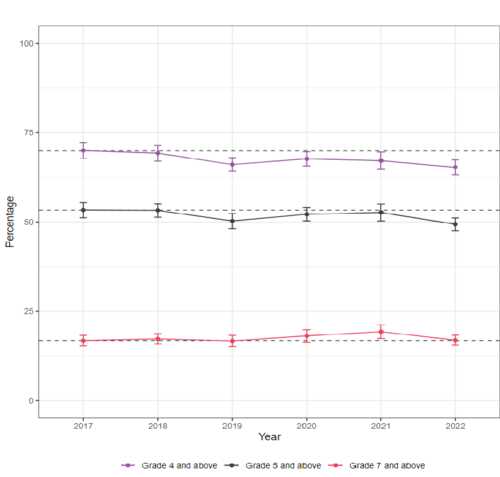
I also think there is no clear evidence that the pandemic has led to a decline in the percent achieving a standard pass (grade 4) or strong pass (grade 5) either. If one compares the data points for 2019, 2020, 2021 and 2022 they all seem to be broadly around the same level.
Indeed, if anything, there seems to have been more “action” (decline) in English performance between 2017 and 2019 (before the pandemic) than between 2019 and 2022.
So, what do I take from these headline results?
The main thing I think is that teachers and schools deserve of a lot of credit for their efforts over the last few years.
The results from the NRT give us our best indication of learning loss and subsequent catch-up in secondary schools. The pandemic obviously had the potential to cause huge educational damage. From the NRT, I think what we can see is the huge efforts the education community has made over the last few years.
Of course, this cohort would have been in Year 9 when the pandemic hit England, and so would have had more capacity to learn independently than younger children. When the next set of PIRLS and TIMSS results for England are released over the next couple of years, I think we will get a better idea of how the pandemic has impacted the reading, mathematics and science skills of younger children.
Looking forward to exams next year
If I were in Ofqual’s shoes, how would the NRT results feed into my thinking about examinations for next year?
Well, I would likely be thinking that it probably supports the “glidepath” they are taking to get grades back to “normal” (pre-pandemic) levels. The evidence from the NRT suggests that, actually, young people’s English and maths skills are not hugely out of kilter with pre-pandemic levels.
It would probably also embolden me to limit the amount of forward guidance that students get about examination content (I don’t believe that any of the special arrangements made for GCSE examinations this year would have impacted the NRT results – but happy to be corrected!).
Food for thought, perhaps, over some important decisions to be made over the next few months.



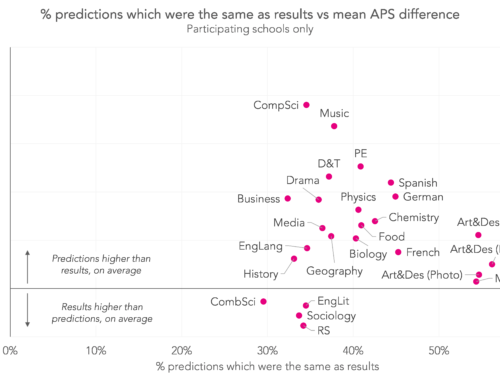

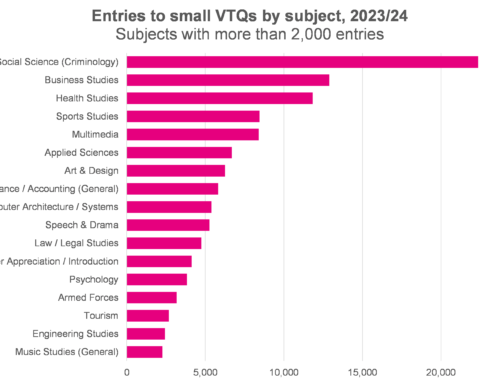
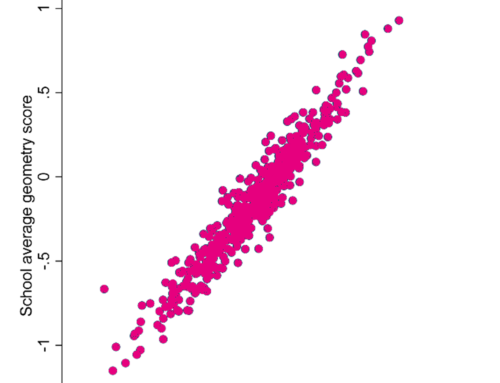
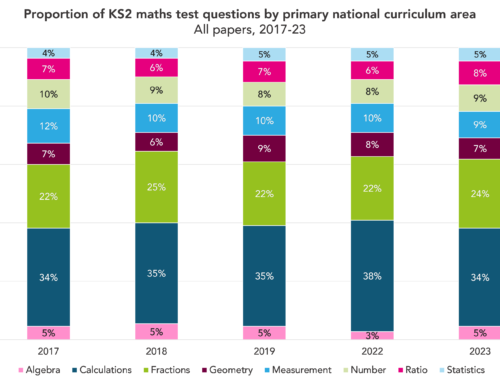
Really interesting post – does the NRT data allow you to look at these trends for disadvantaged students?
It is interesting to not the completion rates of the Tests in 2022, down 5-6% in both English and Maths (similar to 2021), it will be interesting to see if we can see any data on the completion rates in GCSE and A-level to see if this is something we need focus on with students in terms of sustaining effort.